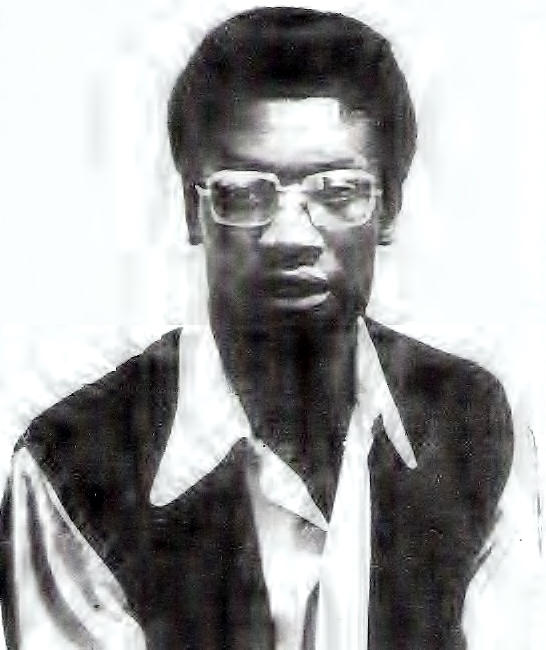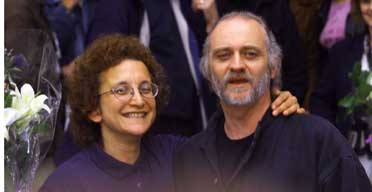Seasons’ greetings from the Justice Gap. Thanks to everyone who has contributed to or otherwise supported the site over the last 12 months.
We are now heading into our 10th year. We launched on October 4, 2011.
2021 promises to be a big year for the Justice Gap.
Proof
 We have a new issue of our print magazine Proof out scheduled for publication in July. Proof#5 is a collaboration with the Law Centres Network and will be edited by Justice Gap editor Jon Robins and Sue James, director of Hammersmith and Fulham Law Centre (and soon to be director of the Legal Action Group). This year marks the 50th anniversary of the law centre movement and the issue will focus on social justice.
We have a new issue of our print magazine Proof out scheduled for publication in July. Proof#5 is a collaboration with the Law Centres Network and will be edited by Justice Gap editor Jon Robins and Sue James, director of Hammersmith and Fulham Law Centre (and soon to be director of the Legal Action Group). This year marks the 50th anniversary of the law centre movement and the issue will focus on social justice.
We are also planning a second issue of Proof for 2021 (Proof#6). This will be a partnership with the Longford Trust and its launch with be at the Trust’s annual lecture in London in November. We hope to be offering a paid internship to a former prisoner as part of the Longford Scholarship scheme. The scheme has supported more than 300 ex prisoners to continue their rehabilitation through education and training. It would be the first time such an opportunity has been provided to start a career in journalism.
‘As well as benefiting the intern, this journalistic opportunity will help raise the bar in the reporting on crime and justice,’ comments Peter Stanford, director of the Longford Trust. ‘Too often simplistic tough/soft narratives are peddled in the media. Having someone with experience of prison who’s turned their life around with university will contribute to a more informed and realistic public conversation.’
 Justice in a time of austerity
Justice in a time of austerity
In 2018 we kicked off our Justice in a time of Austerity project. Together with Dr Dan Newman, we looked at the impact of austerity and the 2013 legal aid cuts on our justice system. Between October 2018 and October 2019, Dan and I toured the country interviewing people going through the justice system in a range of settings. We conducted over 200 interviews in a range of settings – foodbanks, homeless shelters, drop-in services for asylum seekers, MPs surgeries, law centres, CABx as well as courts.
We met people caught up in the housing crisis, from Grenfell survivors to the homeless or the about-to-be homeless; others who had fallen victim to the so-called ‘hostile environment’ including a number of the Windrush generation who had been denied access to benefits, lost jobs and even faced deportation. Some of our interviewees found themselves dependent on welfare benefits and foodbanks, often both. These were difficult lives made even more difficult by the problems that have beset the legal advice sector and in particular the impact of the the 2013 legal aid cuts.
In June 2021, Bristol University Press will publish our book: Justice in a time of austerity: stories from a system in crisis. The book is about how poverty and social inequality are entrenched through a failing justice system.
Projects like this are not possible without support. Thanks to Cardiff University, Ashurst LLP and the Garden Court Special Fund for their support.
The Justice Gap Podcast
Please take some time to listen and support our new podcast – the Justice Gap podcast – produced by Calum McCrae. So far, Calum has been focusing on the SpyCops inquiry -but much more to come this year.
Going forwards
We are currently going through the process of converting into a Community Interest Company to enable us to apply for funding. To that end, last year I appointed an advisory board to help develop the Justice Gap.
We are largely unfunded and run by volunteers.
Our challenge is to find sources of support in an increasingly difficult environment.
At present, we cover our costs through the sale of Proof magazine.
We are looking for a sponsor and advertisers for Proof magazine (issue six) to cover our costs for issue six.
We are also looking for a sponsor for the Justice Gap podcast,
If you can help us, please email jon@thejusticegap.com.
Since we started the site, we have run events – for obvious reasons, they didn’t happen in 2020 but, hopefully, we will see you at some point in the not too distant future.
Below are some highlights from the last 12 months.
If you like the things we do and want us to keep doing them, buy the magazine and support us here.
Happy new year,
Jon Robins
Editor, Justice Gap

Illustration by Paddy Maguire from Proof magazine, issue 4
1. ‘It’s vital that CCRC has money and freedom to investigate miscarriages of justice properly’
The year began with an exclusive. Previously unpublished minutes of board meetings at the miscarriage of justice watchdog revealed the extent of happiness at major reforms foisted on the group by the Ministry of Justice.
It was a story we followed throughout the year. As had been reported on the Justice Gap (here), the Criminal Cases Review Commission (CCRC) has been forced to undergo fundamental reform at the same time that it faced criticism for a collapse in the number of cases it was sending back to the Court of Appeal.
The minutes revealed the pressures on the group as well as factors contributing to the drop-off in referrals. They also captured fierce resistance from the then commissioners, nearly all have since left, to the proposed changes to their terms.
‘It is vital that the CCRC has the money and freedom to investigate miscarriages of justice properly so that the wrongfully convicted can access justice,’ comments Emily Bolton, APPEAL’s legal director. ‘The CCRC’s independence from the Ministry of Justice must be guaranteed, and its commissioners should be on contracts which allow them to develop the skills and experience to fulfil their duties. Otherwise the risk of innocent people being unfairly denied an appeal – and losing extra years of their lives in prison as a result – will remain unacceptably high.
 2. ‘My marriage fell apart when I got sentenced to death by the National Front’
2. ‘My marriage fell apart when I got sentenced to death by the National Front’
Sue James spoke to the human rights lawyer Alastair Logan OBE about acting for Paddy Armstrong in the Guildford Four case and how this changed his life.
‘We were sitting in the Wimpy Bar in Guildford after the committal hearing and I said, “I think my guy’s innocent.” And they all turned to me and said, “We actually think the same about ours as well”,’ Logan told James.
In a separate article, Alastair Logan revisited the landmark case in a special long read (here).
‘The case against the Guildford Four involved massive failure to disclose evidence, the disappearance of material evidence, perjury, conspiracy to pervert the course of justice and perversion of the course of justice… .With that background and the failure to bring anyone to account for the causes of the miscarriage, is it any wonder that there are concerns that the whole truth may never see the light of day?’
Alastair Logan OBE
3. ‘I believed in myself. That’s how I’ve survived’
‘This lifestyle is a lonely life. You’ve got this wrong conviction in your head all the time,’ Winston Trew told Harriet Bland.
Trew was one of the Oval Four (pic above), a group of young men who, one evening in March 1972, were accosted by British Transport Police officers at Oval Underground Station, arrested on suspicion of carrying out muggings, and shortly afterwards convicted of crimes that they had not committed.
They spent months on bail awaiting trial, endured a five-week trial in the Crown Court, followed by eight months in prison. A few weeks earlier the Oval Four’s convictions were overturned by the Court of Appeal after a 47 year struggle.
You can hear Winston Trew in conversation with podcaster Calum McCrae here.
4. ‘A victim of British Injustice’: Derek Bentley remembered
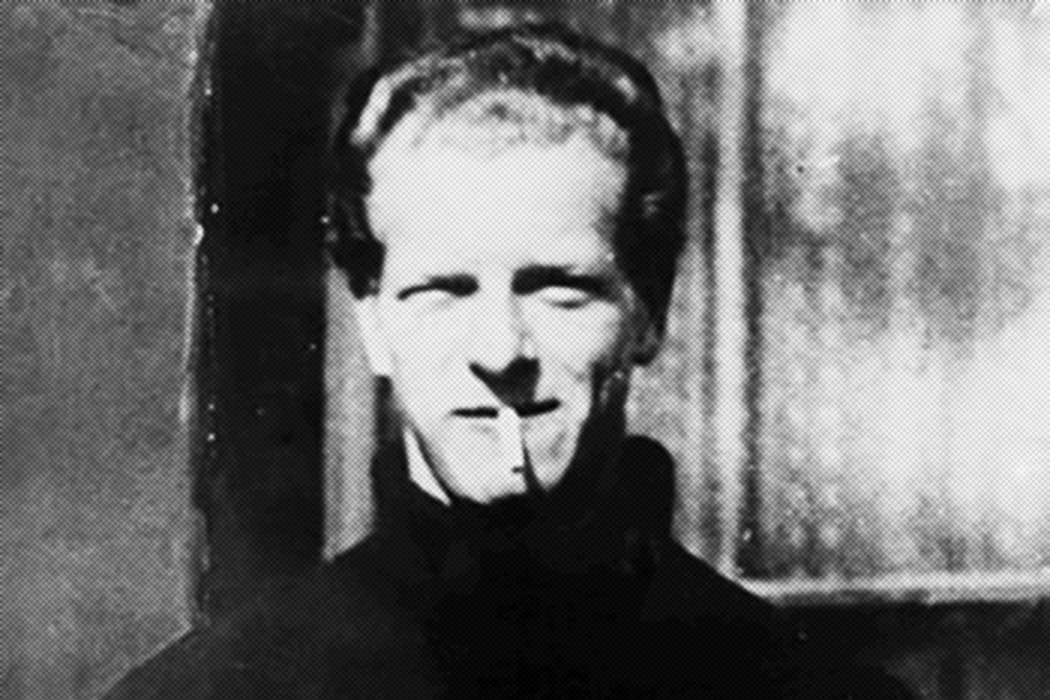
More than seven decades after Derek Bentley was hung for a crime he did not commit, surviving family members and campaigners came together to lay a wreath at his grave, reported Edie Martin.
The commemoration was organised by the legal charity APPEAL which launched a campaign video to mark the anniversary featuring Christopher Eccleston reprising his role as Bentley in the 1991 film Let Him Have It.
In 1953 Derek Bentley, aged 19, was convicted of the murder of a police officer and sentenced to death. It is the most infamous example of the use of joint enterprise law. Bentley was found guilty despite neither possessing nor firing a gun and giving himself to the police without violence. His co-defendant Christopher Craig, who fired the gun, was too young to be executed and served only 10 years in prison. The police officer is said to have asked Craig to hand over the gun and the prosecution case rested on the ambiguous words he allegedly spoke – ‘Let him have it, Chris’ – interpreted by the court as an incitement to murder.
‘My career was built on Derek’s scaffold. It was an honour to play Derek in ‘Let Him Have It’ back then, and doing this campaign clip for APPEAL felt like a natural extension of that. The system did not listen to Derek then and it is still not listening to people like him today.’
Christopher Eccleston
5. ‘Shamima Begum should be made to face British justice. Not a show trial and a noose.’
‘Had Begum been a 15 year old groomed by paedophile gangs, or used as a drug mule, or forced into prostitution, the country would have been up in arms,’ wrote Nicholas Reed Langen of Shamima Begum, one of three schoolgirls from Bethnal Green who left the country in 2015 aged 15 to join ISIS. ‘But not at her, at those who had abused her, and at the state for failing her. Her situation is little different to these, yet she is reviled.’
6. ‘What can I say to get me out of this?’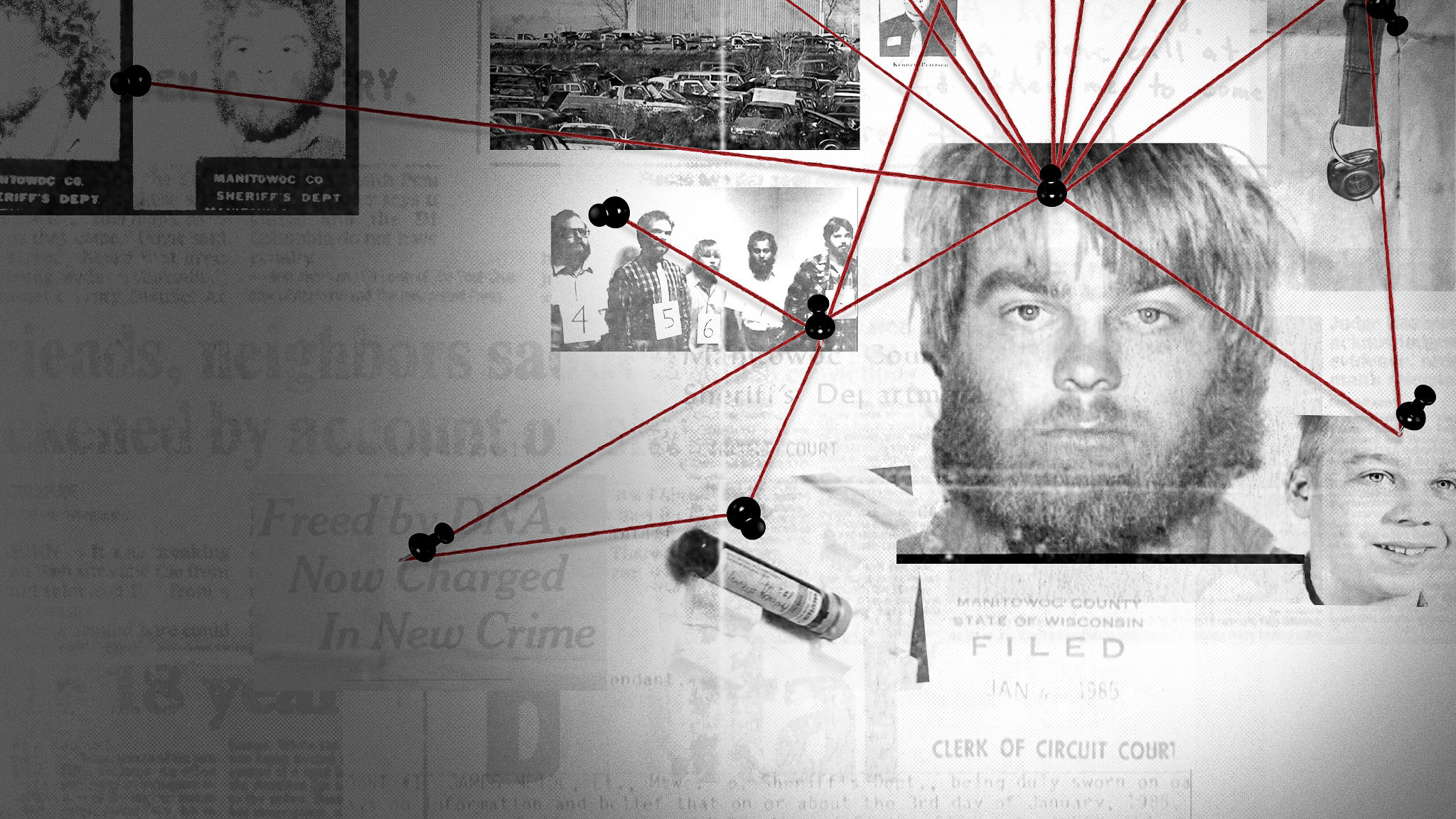
‘We’re about 35 years behind the UK when it comes to providing protections for suspects in the interrogation room,’ said Steve Drizin, who alongside fellow lawyer Laura Nirider appeared in the Netflix smash Making a Murderer representing long-term client Brendan Dassey.
The pair, co-directors at Northwestern University’s Center on Wrongful Convictions, were talking to Jon Robins. They have represented Dassey since 2007 and were talking about their new podcast. There are only 26 states in the US that mandate video-recording police interviews.
‘We know of hundreds of proven false confessions: cases where somebody confesses during a police interrogation and they’re convicted on the basis of that confession and years later an organization like ours comes along and does DNA testing to prove it false,’ said Nirider.
7. ‘Shameful’: Just £10,000 paid out to victims of wrongful conviction in two years
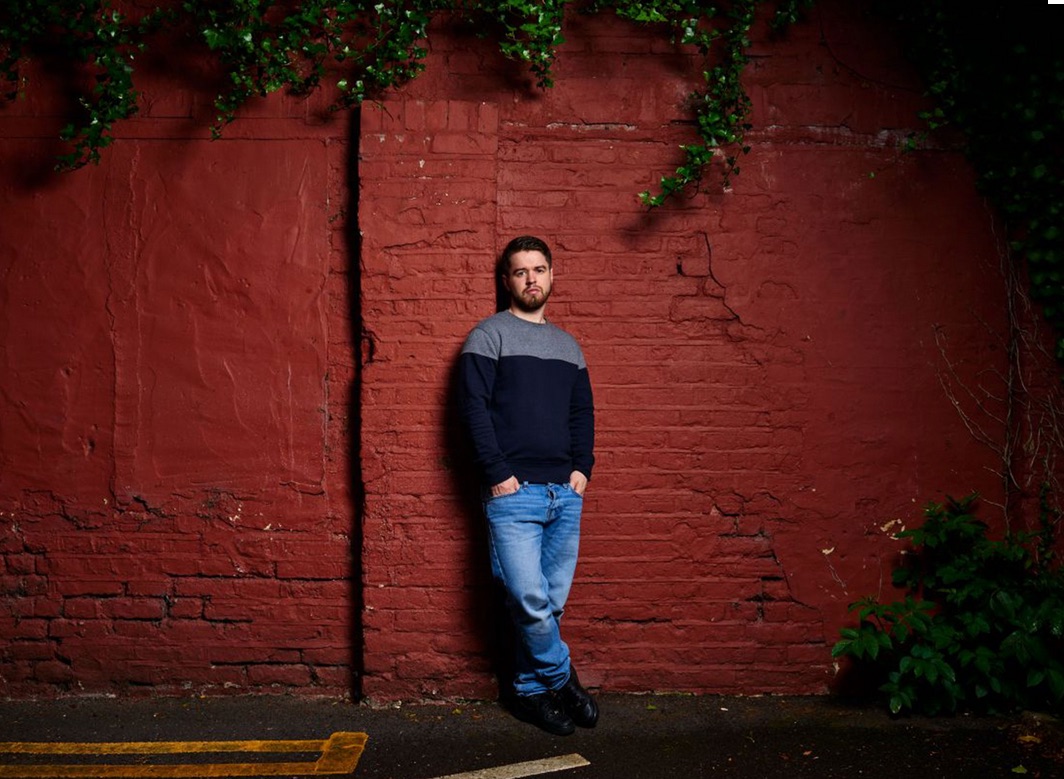 The system for compensating the wrongly convicted has almost ground to a halt with the Ministry of Justice having received 157 applications in the last two years and only paying out £10,000. Only eight people have received compensation since the Coalition government restricted payouts with the introduction of the Anti-Social Behaviour, Crime and Policing Act 2014.
The system for compensating the wrongly convicted has almost ground to a halt with the Ministry of Justice having received 157 applications in the last two years and only paying out £10,000. Only eight people have received compensation since the Coalition government restricted payouts with the introduction of the Anti-Social Behaviour, Crime and Policing Act 2014.
Since then, the Ministry of Justice has received 316 applications for compensation including Victor Nealon and Sam Hallam who are currently challenging refusal before the European Court of Human Rights. In response to a freedom of information request submitted by the Justice Gap, the Ministry of Justice has confirmed just how effectively the 2014 reforms shut down compensation payouts for the wrongly convicted.
8. ‘I got more justice from Mugabe than I ever got here’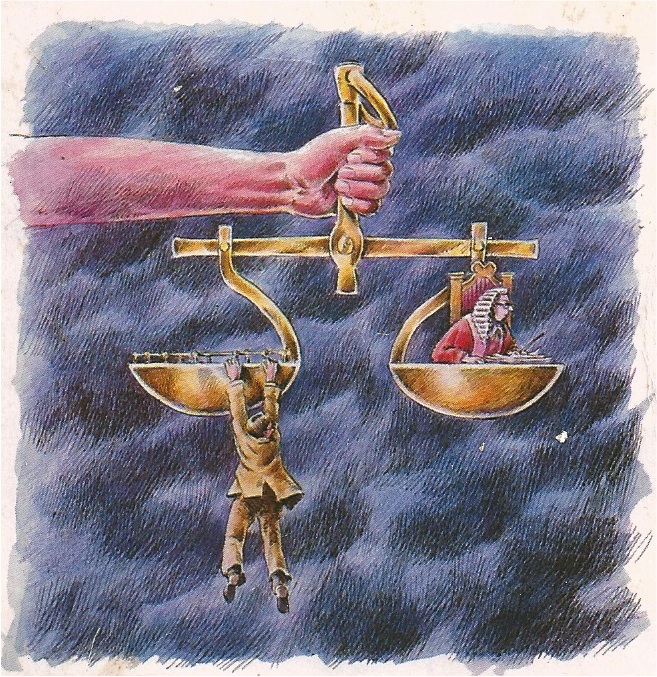
Jon Robins explored the bizarre case of Clive Freeman, jailed in 1989 for murder but who always protested his innocence. He was mounting a fourth attempt for his guilty verdict to be reconsidered.
Clive Freeman was sent to prison in 1989 for the murder of an alcoholic drifter whose charred remains were found in his burnt-out flat in Rotherhithe, south London.
‘I promised my wife I would only leave prison as a justly acquitted I man,’ Freeman told Robins. ‘I’m a man of faith. My word is sacrosanct.’ Freeman was born in Salisbury, Rhodesia in 1943 and was forced to flee Zimbabwe (as it became) for London four decades later.
Father Hugh Sinclair first met Freeman in 1989 as a chaplain at Wormwood Scrubs Prison. ‘For me, his innocence seems obvious,’ Father Hugh said. ‘The Birmingham Six, Guildford Four and Carl Bridgewater defendants were all under my pastoral [care]. You develop a sixth sense. It’s difficult to keep telling lies in prison and expecting people to believe them.’
Freeman, recently diagnosed with prostrate cancer, was due for a Parole Board. ‘They used to ask me “are you in denial?”,’ he told Robins. ‘In 1998 my wife was dying and they said “If you changed your stance you’d be out in 18 months” But how could I? I am an innocent man.’
9. Appeal planned in ‘coughing Major’ case
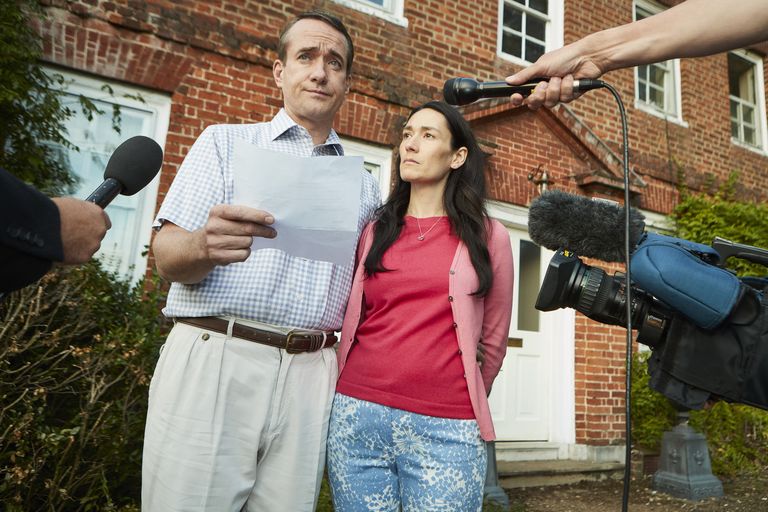
The former army officer and Mensa member Charles Ingram was convicted for cheating on Who Wants To Be A Millionaire? on the strength of 19 coughs which the prosecution said indicated which answer he should give during the course of a single episode. The airing of a new TV drama Quiz (featuring Matthew Macfadyen and Sian Clifford as the Ingrams and Michael Sheen as programme host Chris Tarrant) coincided with news of a possible appeal in what has become known as ‘the case of the coughing Major’.
Jon Robins spoke to Ingram’s solicitor Rhona Freedman.
‘So why, in a cunning scheme to defraud ITV of Ј1 million, rely on somebody you had never met before, somebody who’s sitting behind you and, for the plan to work, you have to rely on this guy ace-ing all the questions. Then the one guy you chose has a persistent cough. Why?’
Rhona Freedman
10. Ben Geen: Statisticians back former nurse’s in last chance to clear name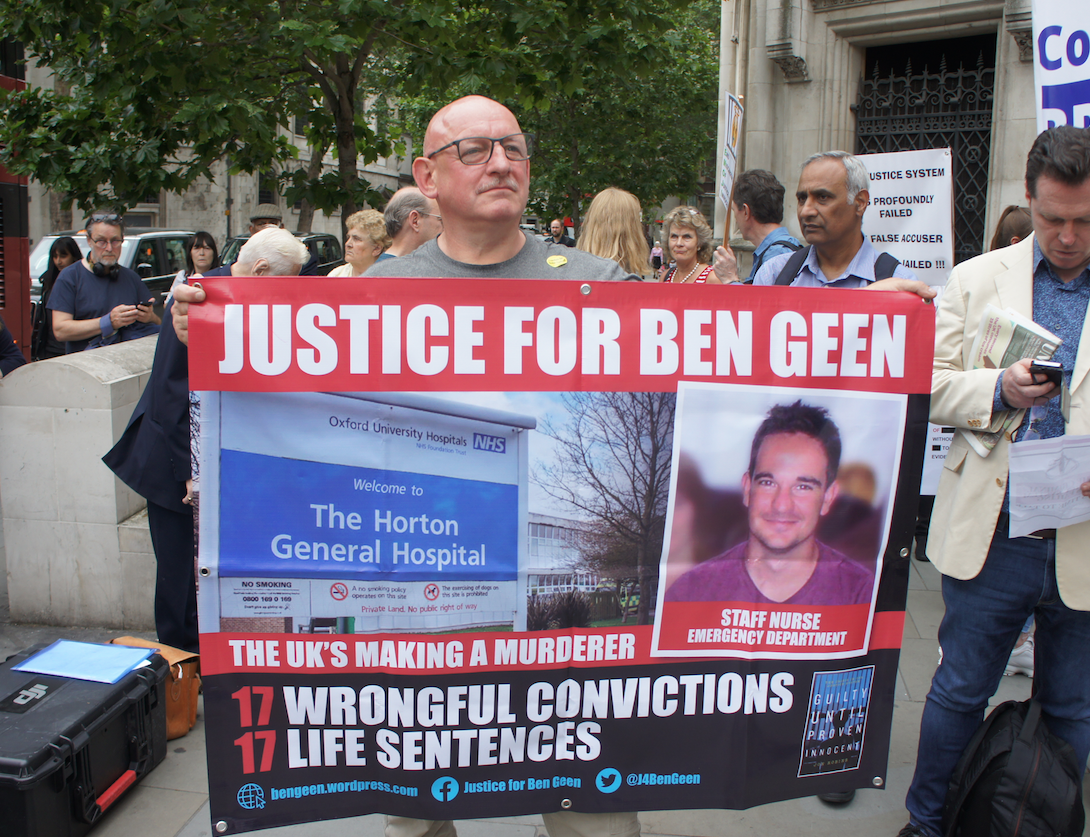
Leading statisticians came out in support of a former nurse serving 30 years for murder in a final attempt to clear his name. Ben Geen was portrayed in the press as ‘the nurse who killed for kicks’ and sent to prison in 2003.
‘We have grave doubts as to the courts’ ability to get to grips with what was going on at the hospital,’ commented Professor Richard Gill, emeritus professor of mathematical statistics at the University of Leiden in the Netherlands. A previously rejected application to the miscarriage of justice watchdog – backed by five leading statisticians including Sir David Spiegelhalter, of Cambridge University and Professor Norman Fenton, of Queen Mary’s University of London as well as Richard Gill – argued that the likelihood of a cluster of such events was far from unusual.
A soon to be published new paper – co-authored by Gill, Fenton as well as Professors David Lagnado from University College London and Martin Neil from Queen Mary’s – for the first time draws on data as to admissions at Horton General over a 13 year period with the critical three months when Geen was supposed to have been on a killing spree at its centre.
11. ‘No closure’ for family of Gordon Park as appeal court dismissed ‘lady in the lake’ case
Appeal judges dismissed a posthumous attempt to overturn the conviction of a man for killing his wife who had gone missing in 1976 and whose body was discovered by scuba divers in Coniston Water, Cumbria more than two decades later. Gordon Park was convicted of the murder of his wife, Carol, in 2005 in a case that inevitably became known in the press as ‘the lady in the lake’ murder.
An earlier appeal was dismissed in November 2008. Little over a year later, the former teacher took his own life in his cell at HMP Garth in Lancashire. Gordon Park had always protested his innocence and was supported by the couple’s children. The latest appeal followed a referral by the Criminal Cases Review Commission as a result of an application by his son, Jeremy, made ten years ago.
12. Taking down statues
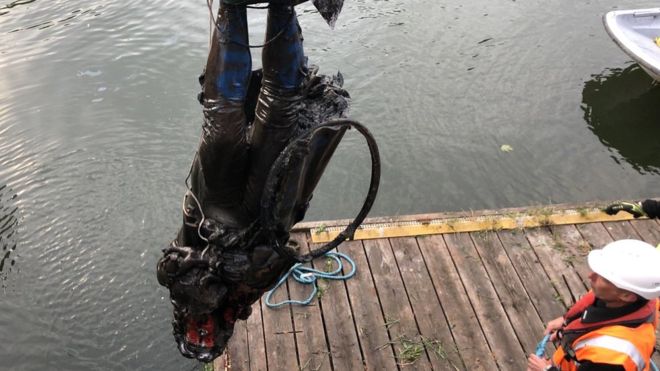
‘Perhaps a decent lawyer could have got Cummings off, but it would have been on a technicality,’ wrote Nicholas Reed Langen of the PM’s chief adviser’s sightseeing trip to Barnard Castle.
Later Reed Langen wrote about Black Lives Matter and the dunking of the statute of slave trader Edward Colston. ‘Taking down statues does not cause us to forget history,’ he argued in a piece looking at. ‘Statues are not mere decorations, pleasant distractions from the monotony of the high street. Nor are they a record of our history. They demonstrate our values and principles as a society. It is no little thing to fund and commission a statue – who we carve in marble is as revealing as who we do not. Cecil Rhodes looms over Oxford High Street….’
13. MoJ accused of undermining independence of miscarriage watchdog and ‘clipping its wings’
 The Ministry of Justice was accused of deliberately undermining the independence of the miscarriage of justice watchdog and ‘clipping the wings’ of its commissioners in the High Court.
The Ministry of Justice was accused of deliberately undermining the independence of the miscarriage of justice watchdog and ‘clipping the wings’ of its commissioners in the High Court.
Lawyers acting on behalf of prisoner Gary Warner, sentenced to 16 years in prison for his role in an armed robbery, argued that the CCRC was not sufficiently free from government control. Warner is challenging a decision by the watchdog to reject his application.
Later in the year a number of former CCRC commissioners spoke out about their concerns about the independence of the miscarriage of justice watchdog.
‘The CCRC was born out of the ashes of C3,’ says another former commissioner who left the organisation in 2018. ‘I always thought that the MoJ wanted to bring the commission back in-house. The ministry with, to some extent, the connivance of the executive of the CCRC set out to neuter the commission over a long period of time.’
Not their finest hour?
Meanwhile miscarriage of justice watchdog finally referred the case of construction workers claiming to have been wrongly jailed following an industrial dispute in the 1970s, 10 months after being forced to change its mind as a result of being challenged through the courts.
As reported previously on the Justice Gap, the CCRC rejected the application on behalf of members of the so called Shrewsbury 24 in December 2018 and the group successfully challenged that refusal last April. Prior to the CCRC rejecting the case, the watchdog had spent five years investigating it – see here and here.
‘These are complex matters of judgment and not precise calculations. Some will think this has not been the Commission’s finest hour, but it does at least show that we are an organisation that can revisit a decision impartially and where necessary change its mind.’
Helen Pitcher, CCRC chair
Elsewhere we reported that the CCRC rejected an application written by former Appeal judge. As has been reported previously on the Justice Gap, Sir Henry Brooke had been helping the family of a man who claims to have been wrongly convicted of false sexual allegations made by a 16-year old.
14. In defence of activist lawyers
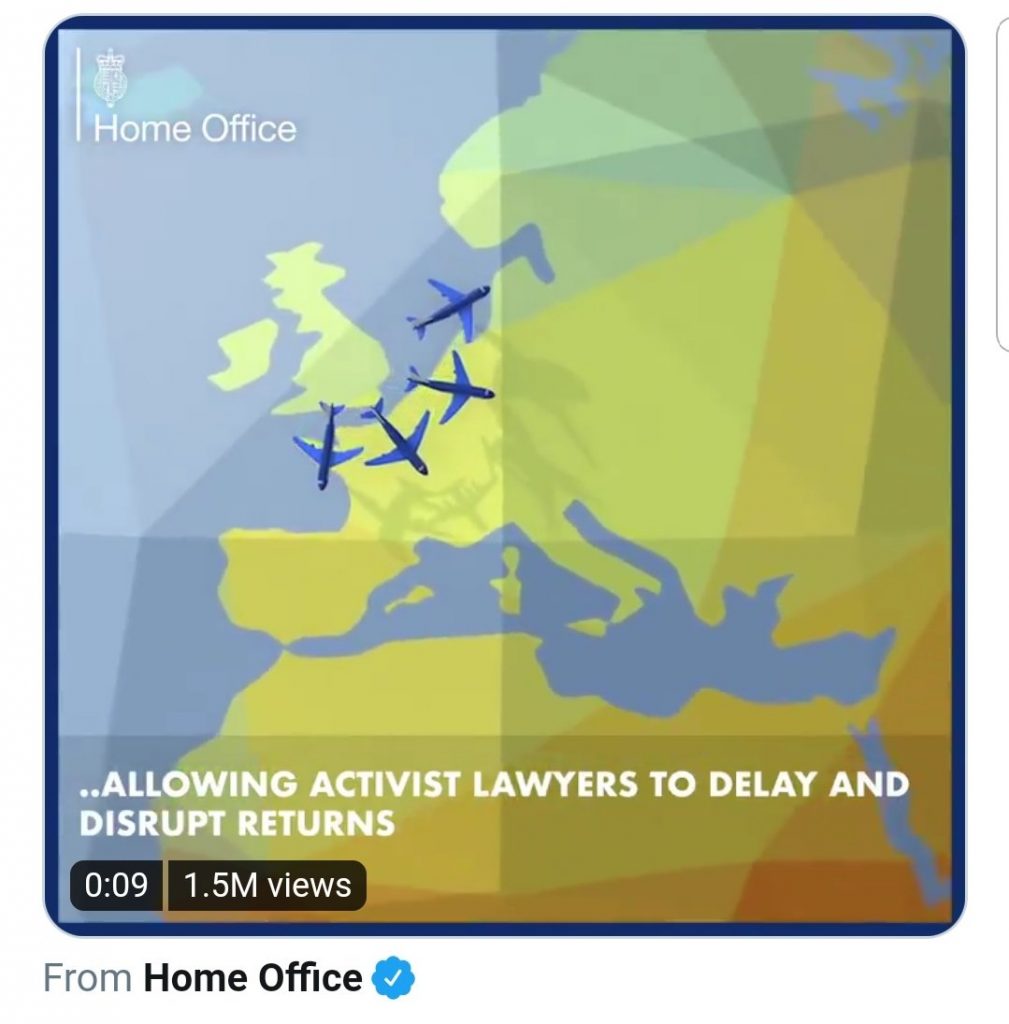 ‘It is not the government’s right-wing ideology, however, that many lawyers are opposed to, but its constant attempts to shield itself from scrutiny and undermine the rule of law,’ wrote Nicholas Reed Langen ‘The justice system is one of the few ways that the vulnerable and oppressed can challenge the government, where judges can force it to explain itself, holding it to account for unjustified, irrational, or immoral policies. Scandals like Grenfell and Hillsborough are exposed by judge-led inquiries, while citizens – even those that may deserve our scorn, like Shamima Begum – have their rights upheld.’
‘It is not the government’s right-wing ideology, however, that many lawyers are opposed to, but its constant attempts to shield itself from scrutiny and undermine the rule of law,’ wrote Nicholas Reed Langen ‘The justice system is one of the few ways that the vulnerable and oppressed can challenge the government, where judges can force it to explain itself, holding it to account for unjustified, irrational, or immoral policies. Scandals like Grenfell and Hillsborough are exposed by judge-led inquiries, while citizens – even those that may deserve our scorn, like Shamima Begum – have their rights upheld.’
15. ‘The whole of the criminal justice system dumped on Eddie’
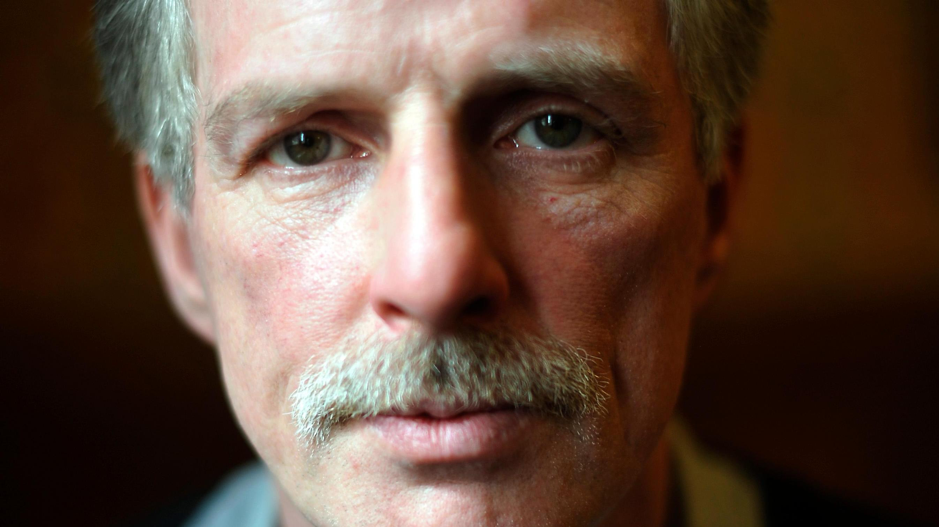 The police officer charged with reinvestigating the case of Eddie Gilfoyle, convicted of killing his pregnant wife 28 years ago, said that he doesn’t believe the man who served 18 years in prison is a murderer.The death of eight-and-a-half month pregnant Paula Gilfoyle in 1992, found hanging by the neck in the garage of their family home on the Wirral, Merseyside, has been cited as one of the worst miscarriages of justice in recent history and featured regularly on the Justice Gap. It was the prosecution case that Gilfoyle faked her suicide.
The police officer charged with reinvestigating the case of Eddie Gilfoyle, convicted of killing his pregnant wife 28 years ago, said that he doesn’t believe the man who served 18 years in prison is a murderer.The death of eight-and-a-half month pregnant Paula Gilfoyle in 1992, found hanging by the neck in the garage of their family home on the Wirral, Merseyside, has been cited as one of the worst miscarriages of justice in recent history and featured regularly on the Justice Gap. It was the prosecution case that Gilfoyle faked her suicide.
In 1993, superintendent Graham Gooch of Lancashire Police was appointed by the Police Complaints Authority to re-investigate the case. A new account of the case by the Guardian journalists Eric Allison and Simon Hattenstone included an interview with Gooch who remained angry about the way his report was dismissed by the courts. He believes it could have clear Gilfoyle on appeal. ‘It would be enough to spread such doubt on the conviction that it would be overturned,’ he told the journalists. ‘I would go as far as to say I don’t think he did it. I don’t think he’s a murderer.’
16. Justice Matters: ‘Nothing like a pandemic to expose the frailties of our ‘broken’ justice system’
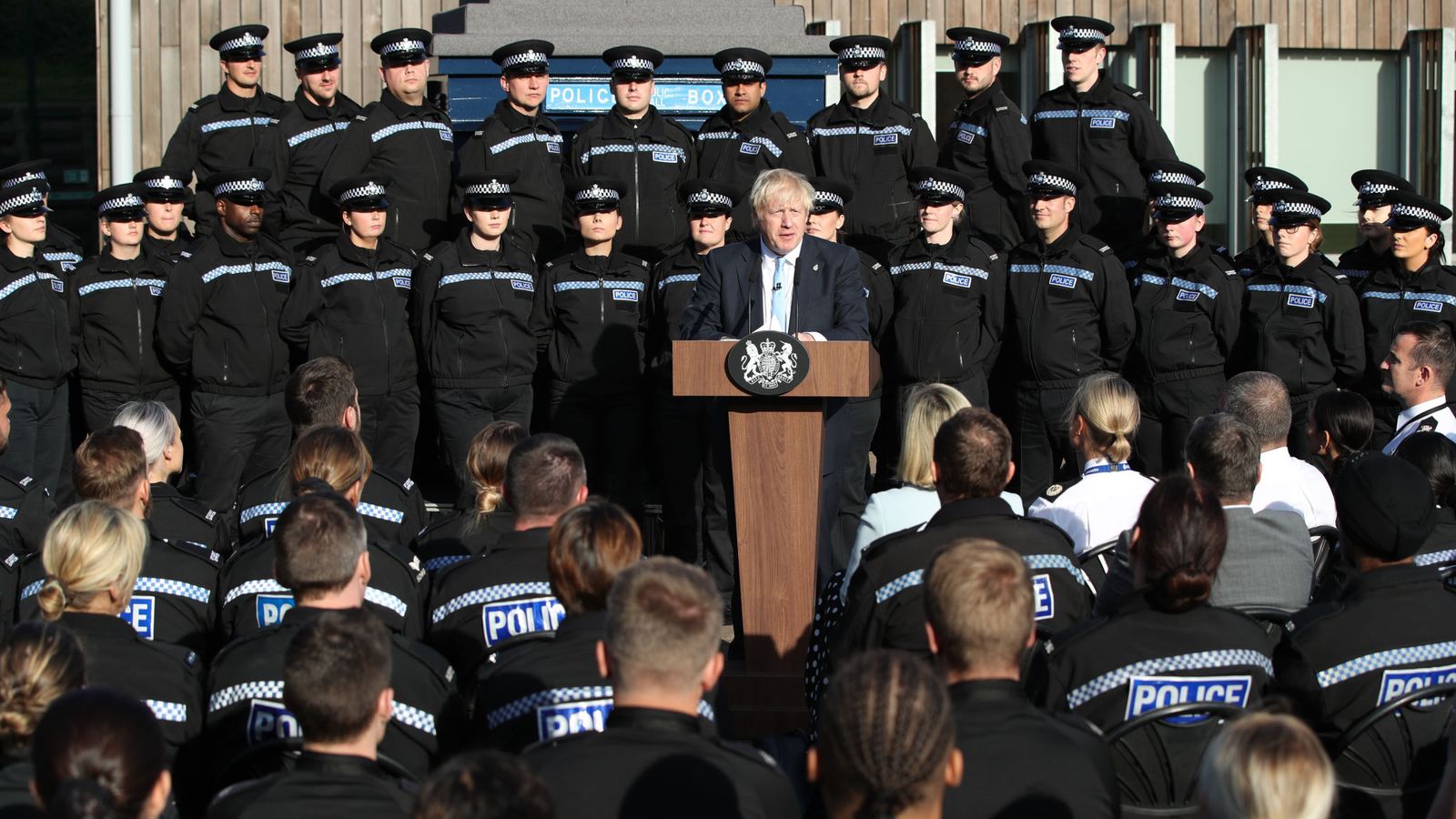 ‘Nothing like a pandemic to expose the frailties of our “broken” criminal justice system to the harsh light of scrutiny,’ began Matt Foot and Jon Robins in their contribution to a new publication Justice Matters: essays from the pandemic produced by the Justice Alliance and published by the Legal Action Group.
‘Nothing like a pandemic to expose the frailties of our “broken” criminal justice system to the harsh light of scrutiny,’ began Matt Foot and Jon Robins in their contribution to a new publication Justice Matters: essays from the pandemic produced by the Justice Alliance and published by the Legal Action Group.
‘Beware those with a vested interest, say, politicians or senior members of the judiciary turning a crisis into an opportunity (e.g, pushing remote justice, limiting trial by jury etc),’ they argued. ‘Let’s be mindful of deep embedded structural problems getting pushed to the back of the agenda. In short, it’s time we talked about miscarriages of justice. All too often there is a cognitive dissonance at play in the debate over criminal justice reform. Everyone signs up to the notion that it is “broken” but there is never quite enough time to discuss one inevitable consequence: wrongful convictions.’
‘If you are the victim of miscarriage of justice, the odds have never been more stacked against you. If by some miracle the CCRC refers your case to the Court of Appeal and its judges overturn your conviction (miracle #2), don’t expect the state to compensate you for those hellish lost years. In the last two years, the MoJ hasn’t paid out a penny as a result of the Coalition government’s 2014 change in the law. Now to be eligible you compensation you have to be able to prove your innocence beyond reasonable doubt – in other words, our lawmakers have reversed the standard burden of proof. It’s a scandal. Pandemic or not, we need to talk about miscarriages.’
Matt Foot and Jon Robins
17. ‘I was amazed how quickly I became a prisoner. It is brutalizing’
Some 22 years ago charity worker Ruth Wyner was imprisoned along with her colleague for letting heroin be dealt by service-users in the homeless centre they ran. Two undercover police officers saw street people exchanging bags of heroin on the charity’s premises. The case became a cause célèbre and the pair became known as the Cambridge Two. She discussed politics and prison with Matt Hobbs.
‘They sent in two policemen undercover, one of them called themselves “Swampy”,’ she recalled; adding that the police infiltrated the day centre a dozen times and on nine occasions they were able to buy a £10 bag of heroin. ‘On that basis they arrested me,’ she said. ‘I mean that law was really set up for people who run crackhouses, it wasn’t set up for people trying to provide services.’
18. ‘Logistically moronic’

Nicholas Reed Langen considered Priti Patel’s plans to ship asylum seekers to South Atlantic
‘”Like a wicked Noah’s ark”, the prison hulks dominate the opening chapters of Dickens’ Great Expectations, ‘cribbed and barred and moored by massive rusty chains’. Dickens used the hulks to show how prisoners were alienated from society, somehow becoming less than human ‘because they murder, and because they rob, and forge, and do all sorts of bad’, as Mrs Joe put it to Pip. This need to dehumanise is shared by the government….’
Nicholas Reed Langen
19. ‘We are not the dirt we clean’: Migrant workers during the pandemic
The Ministry of Justice was one of a number of government departments planning to scrap sick pay protection extended to outsourced workers during the Coronavirus pandemic at the end of this month. In the first of a new Justice Gap series, Finnian Clarke looked at the plight of migrant workers during the pandemic doing the frontline jobs leaving them the most exposed to the virus but the least protected.
Emanuel Gomes, a cleaner who worked at the Ministry of Justice’s main offices in Westminster, died in April after having worked for around five days with Covid symptoms because he believed he could not afford to live on statutory sick pay, just £95.85 per week. Born in Guinea Bissau, Emanuel had worked for the MoJ through the outsourcing company OCS since 2018. He had not eaten for five days before his death and was so weak on the day of his death that he barely knew where he was. He felt unable to take the time off to rest as he could not afford to live on £19.17 a day.
20. JusticeGap Podcast launched: ‘A mother died – and a campaigner was born’
 The Justice Gap’s new podcast series was launched. Ricky Reel’s family have always believed the 20-year old Asian student was killed in a racist attack. His body was found in the Thames after a night out in Kingston-upon-Thames. In this first episode of the new weekly podcast from The Justice Gap, his mother Sukhdev Reel told producer Calum McCrae about how a family was devastated by the tragedy and how their misery was compounded when they discovered that that the police had been spying on them instead of finding Ricky’s murderers.
The Justice Gap’s new podcast series was launched. Ricky Reel’s family have always believed the 20-year old Asian student was killed in a racist attack. His body was found in the Thames after a night out in Kingston-upon-Thames. In this first episode of the new weekly podcast from The Justice Gap, his mother Sukhdev Reel told producer Calum McCrae about how a family was devastated by the tragedy and how their misery was compounded when they discovered that that the police had been spying on them instead of finding Ricky’s murderers.
‘The spying took place when we were on our knees begging for them to investigate. They abused my trust.’
Sukhdev Reel
It was the first of three episodes featuring interviews with core participants from the so called SpyCops inquiry. In episode three the radical human rights lawyer Michael Mansfield QC told Calum McCrae that he believed that he had been a victim of state surveillance since the early 1970s when as a newly qualified barrister he was acting for the likes of the Angry Brigade and the Price Sisters.
‘˜People didn’t want me to do those cases,’ he said in the third episode of the Justice Gap podcast. ‘Fellow lawyers thought I was a traitor. But from that moment on the state was taking an interest in me thinking that I was “one of them”, a terrorist or a sympathiser.’




